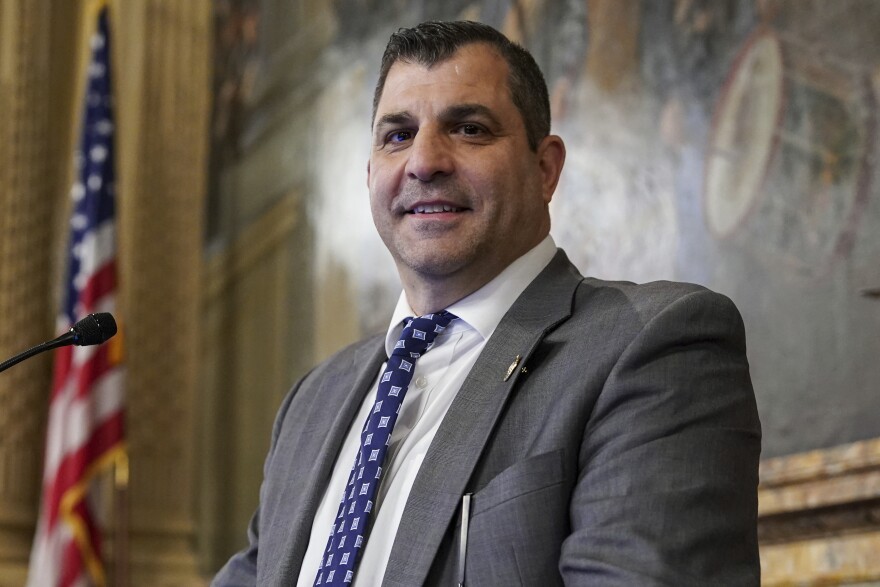A week after he was a surprise choice to become speaker of the Pennsylvania House of Representatives, Democratic state Rep. Mark Rozzi on Monday canceled sessions for the rest of the week after failing to reach a deal on his primary legislative priority.
Lawmakers were brought to the Capitol for a hastily called special session designed to speed passage of a two-year window for letting some victims of child sexual abuse file otherwise outdated lawsuits.
But the House did virtually no business, and after hours of delay Rozzi issued a statement saying the two caucuses were too far apart. He announced he would create a “working group” of three Republicans and three Democrats “of varied interests from across the commonwealth to sit down and find a way forward.”
He said “statute of limitations reform” was his objective, “but we also must fix the workings of our government and find a way to move forward as Pennsylvanians for the betterment of Pennsylvania.”
Rozzi, who represents a Reading area district, was elected as speaker on Tuesday, breaking a deadlock caused by the two parties’ photo finish results in the November election. The speakership vote was 115-85, with all seven members of the GOP leadership and nine other Republicans joining all Democrats.
House Republicans expressed disappointment late Monday that their chamber’s “most basic organizational issues” were obstructing their work.
Their statement said the chamber should proceed in regular session “with rules that receive engagement from both caucuses, and with the well-being of the people of Pennsylvania -- and not individual interests -- as our first priority.”
The Democratic caucus said that their members were ready to work “alongside our Republican counterparts on Speaker Rozzi’s work group to bridge our divides to ensure justice for survivors of childhood sexual abuse.”
Rozzi has vowed to conduct himself as an independent and not caucus with either party, but his elevation to the chamber's top job has brought persistent questions about whether he is going to change his party registration.
Also Monday, the Republican representative who nominated Rozzi to serve as speaker wrote him to say that Rozzi should resign because he has waffled over changing party registration.
The letter from Rep. Jim Gregory, R-Blair, who has worked closely with Rozzi on child sexual abuse issues, said “bonds of trust between friends — as close as you and I have been — are now broken.”
Gregory wrote that Rozzi's “words directly contradicted your previous three affirmative answers to me of ‘yes’ that you were going to switch to independent. You made a commitment to uphold your promise to me, to the members of this body, and to the people of Pennsylvania.”
Gregory and Rozzi have both spoken of being abused as children.
The proposed constitutional amendment passed in a first round last session and needs to be approved by both the House and Senate again before going before voters for final approval.
It's unclear whether the House will get much done before special elections are held to fill three vacant Democratic-leaning seats. With those vacancies, Republicans have a 101-99 advantage, with one incumbent GOP member running in a Jan. 31 state Senate special election.
In the Republican-controlled Senate on Monday, a divided State Government Committee advanced three other constitutional amendments. They would mandate voter ID for all elections, empower lawmakers to cancel regulations without facing a governor’s veto and establish election audits by the state's elected auditor general. The three proposals, which were grouped as a package last session with two other measures, were passed by both chambers previously.
___
Brooke Schultz, a corps member for the Associated Press/Report for America Statehouse News Initiative, contributed.




